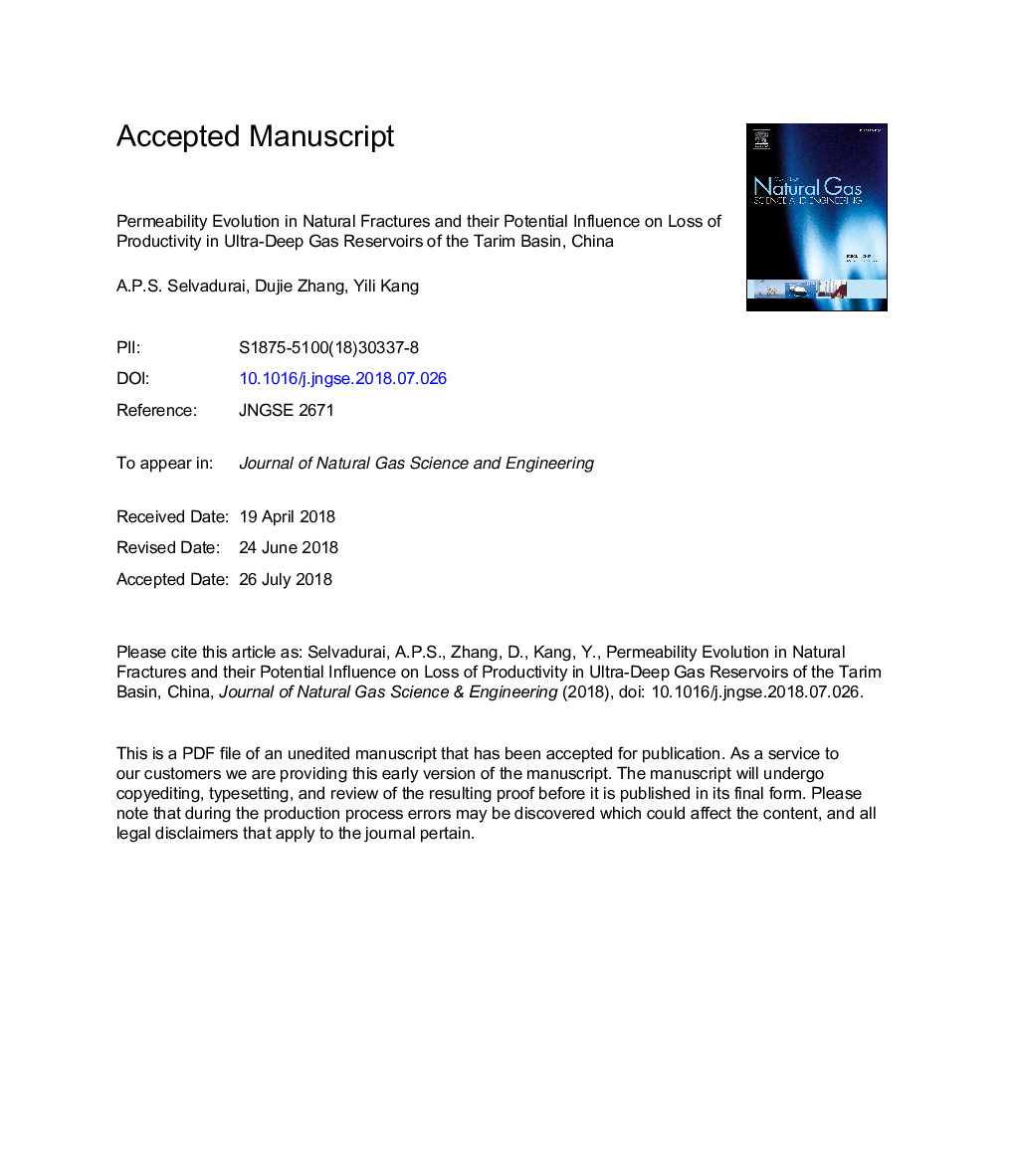| Article ID | Journal | Published Year | Pages | File Type |
|---|---|---|---|---|
| 9953712 | Journal of Natural Gas Science and Engineering | 2018 | 38 Pages |
Abstract
This article examines the influence of working fluids on stress-induced permeability alteration in an ultra-deep tight sandstone gas reservoir. Permeability alteration during hydrostatic compression and infiltration of oil-based drilling fluids and acidizing fluids was investigated in a laboratory setting. The laboratory results indicated that the permeability of fractures in the tight sandstone was influenced by both the alterations in the stress state and type of fluid treatment. In general, the permeability alterations in the fractures are irreversible and cannot be completely eliminated. The stress sensitivity coefficient of the rock samples that were untreated, treated with drilling fluids or treated with acidizing fluids were, on average, 0.45, 0.58 and 0.67, respectively. The high lithic fragment content, multi-scale natural fractures and the rock property changes induced by the working fluids are thought to be the factors controlling the permeability stress sensitivity. A computational procedure was used to assess the influence of various fracture permeability evolution models on the well performance. Simulation results show that the deeper the invasion depth of working fluids and unsuitable drawdown pressures have a significant negative influence on the cumulative production. Finally, a control strategy for addressing stress-sensitivity damage and the influence of production fluids in ultra-deep tight sandstone gas reservoirs is proposed.
Related Topics
Physical Sciences and Engineering
Earth and Planetary Sciences
Earth and Planetary Sciences (General)
Authors
A.P.S. Selvadurai, Dujie Zhang, Yili Kang,
